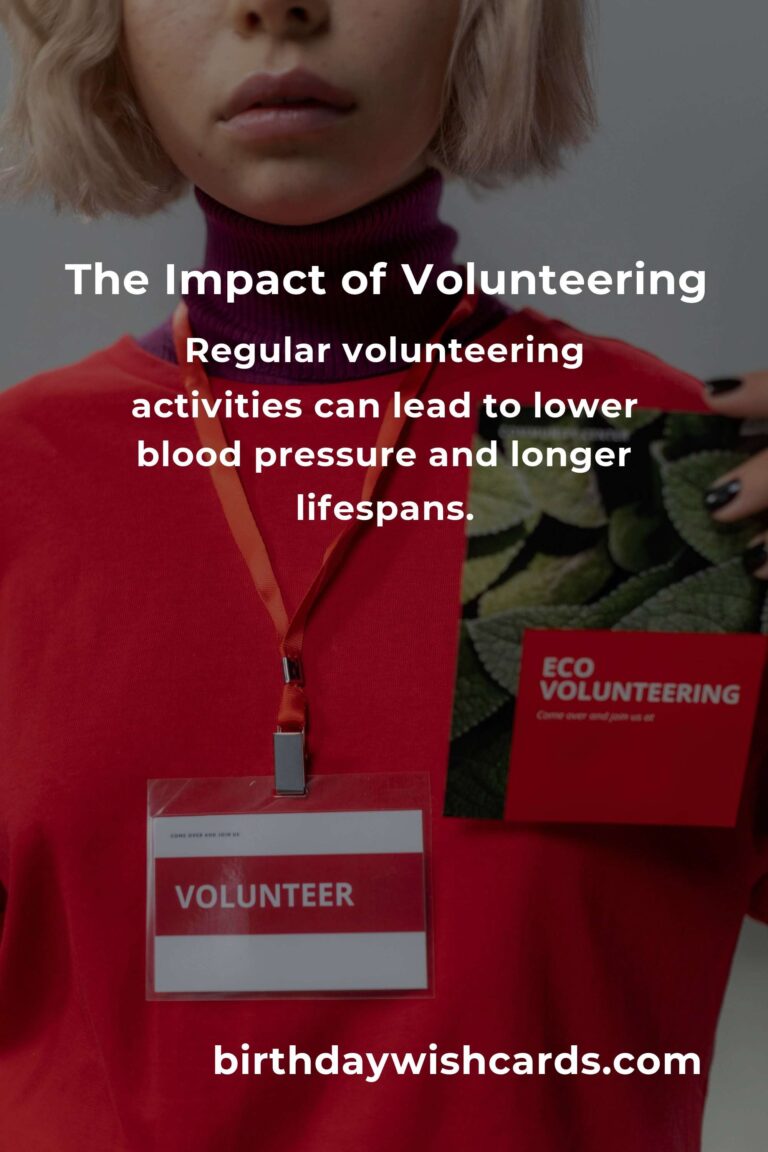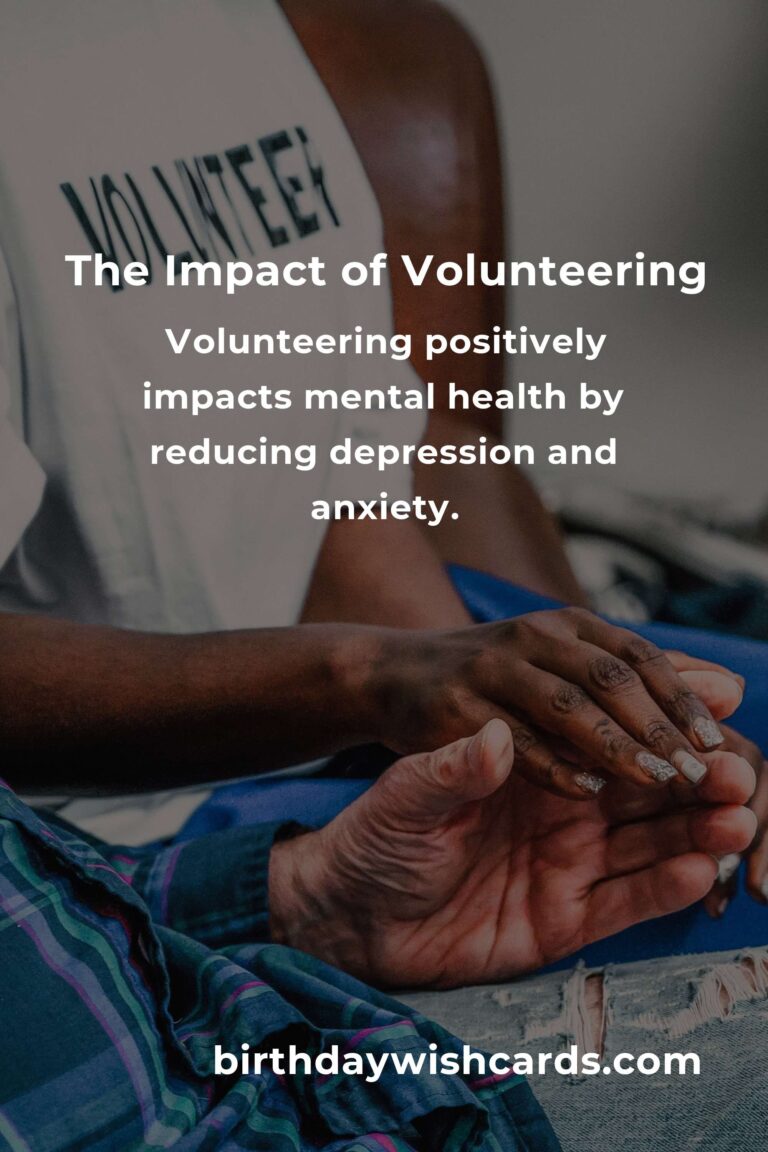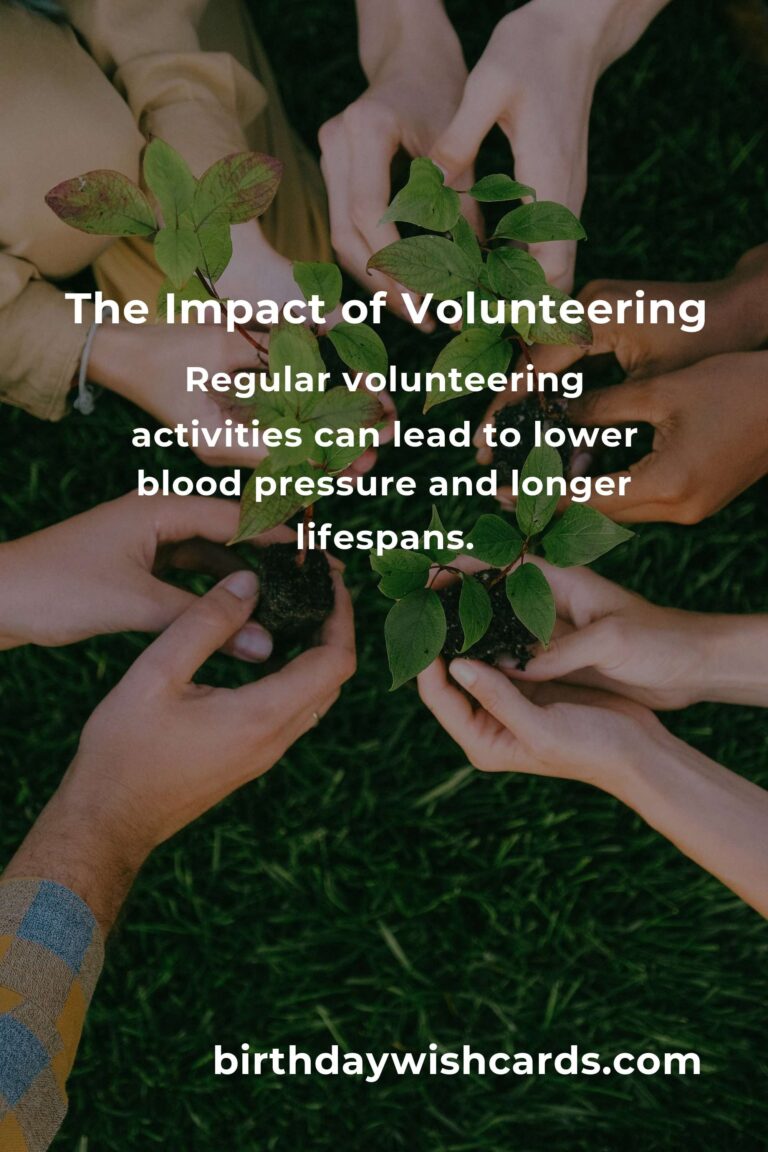
Volunteering is often perceived as a simple act of kindness or a way to give back to the community. However, beneath its seemingly straightforward nature lies a complex web of benefits that extend beyond the obvious. The science behind simple volunteering reveals profound psychological, social, and even physiological impacts that contribute to both personal and communal well-being.
Psychological Benefits: Boosting Mental Health
One of the most significant benefits of volunteering is its positive impact on mental health. Engaging in volunteer work has been linked to reduced levels of depression and anxiety. This is largely due to the sense of purpose and fulfillment derived from helping others. When individuals volunteer, they experience a boost in self-esteem and life satisfaction, which are crucial components of mental well-being.
Furthermore, volunteering can be a powerful tool in combating loneliness. By participating in community activities, individuals can build meaningful connections, reducing feelings of isolation. This social interaction is crucial, especially in today’s digital age where face-to-face interactions are becoming less frequent.
Social Benefits: Strengthening Communities
Volunteering plays a vital role in strengthening communities. It fosters a sense of unity and cooperation among community members. Through collective efforts, individuals can tackle local issues, improve public spaces, and support vulnerable populations. This sense of community spirit is essential in creating resilient and supportive environments.
Additionally, volunteering provides opportunities for people from diverse backgrounds to come together, promoting inclusivity and understanding. By working towards common goals, volunteers break down social barriers and foster empathy and compassion within communities.
Physiological Benefits: Enhancing Physical Health
While the psychological and social benefits of volunteering are well-documented, its impact on physical health is equally noteworthy. Studies have shown that regular volunteering activities can lead to lower blood pressure and longer lifespans. Engaging in physical tasks during volunteering, such as gardening or cleaning, promotes physical activity, which is beneficial for overall health.
Moreover, the stress-reducing effects of volunteering contribute to a healthier heart and immune system. By reducing stress and increasing happiness, volunteering can lead to better health outcomes and a more balanced lifestyle.
Volunteering: A Personal and Collective Journey
The science behind simple volunteering underscores its importance as both a personal and collective journey. On a personal level, volunteering offers individuals the opportunity to grow, learn new skills, and find deeper meaning in their lives. For communities, volunteering is a powerful catalyst for positive change, driving social cohesion and development.
In conclusion, the act of volunteering, though simple in its execution, is profound in its impact. By understanding the science behind volunteering, individuals can appreciate its multifaceted benefits and be inspired to engage in activities that not only enrich their lives but also make a significant difference in their communities.
Volunteering positively impacts mental health by reducing depression and anxiety. Volunteering strengthens communities by fostering unity and cooperation. Regular volunteering activities can lead to lower blood pressure and longer lifespans. The act of volunteering is both a personal growth opportunity and a catalyst for community development.
#Volunteering #CommunityService #MentalHealth #SocialImpact #HealthBenefits













